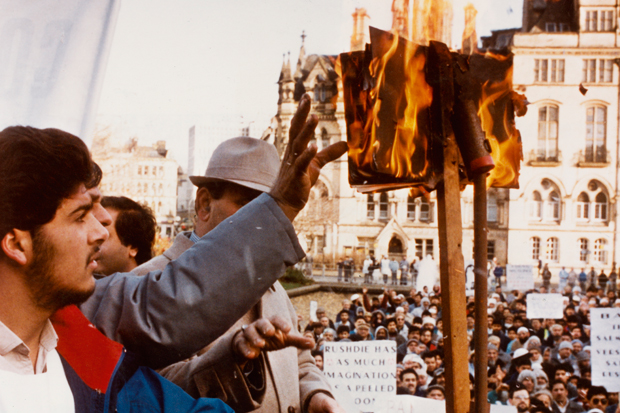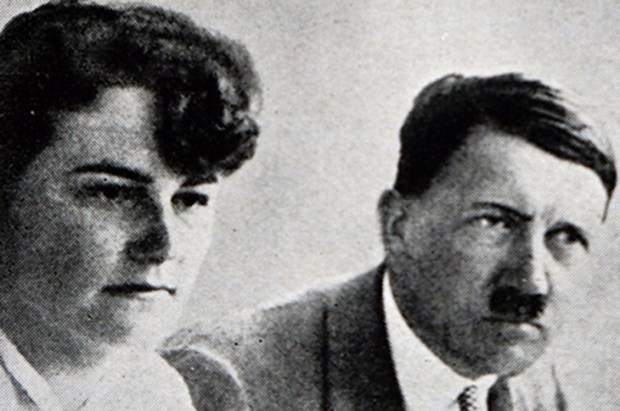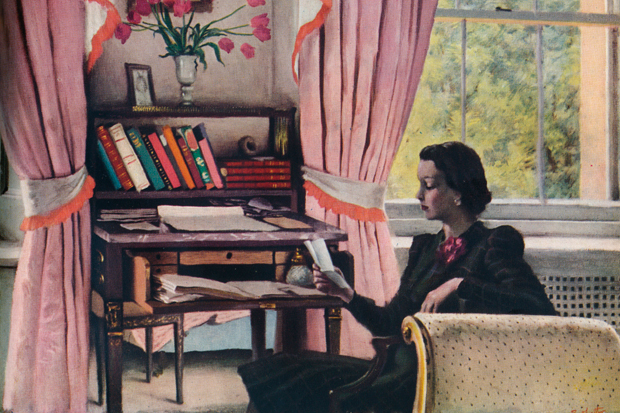This is a book which, as one eyes its lavish illustrations and dips into its elegant prose, looks as if it ought to come with an option to buy a cut-price John Lewis coffee table.
On the Burning of Books is, in fact, much more than that. It wears its scholarship lightly. A weightier treatment of the topic for those interested can be found in Matthew Fishburn’s Burning Books (2008).
Kenneth Baker? A name that rings bells. But what did he do? He enjoyed high office in the Thatcher years. At one point he was touted as a contender for Downing Street. His legacy is the National Curriculum. Best forgotten is the Dangerous Dogs Act. Spitting Image caricatured him, spitefully, as a beslimed slug. He was probably the last politician in England seriously to use Brylcreem.
He has been out of the political game for decades now and, as Baron Baker of Dorking, has enjoyed his later years as a connoisseurial man of letters. Over the years (he is now 81) he has compiled notes on flagrant examples of book-burning. It’s something that gets his goat.
Fishburn devoted thoughtful chapters to what he called humanity’s ‘fear of books’. ‘I’ll burn my books,’ screams a desperate Faustus in Marlowe’s play, thinking thereby to escape the flames of Hell. He doesn’t: he can’t obliterate the books in his brain. He is what he’s read and must burn for it.
Monotonously cited, in various forms, is the Miltonic epigram, ‘Where men are burned, books are burned.’ (Baker recalls being set Areopagitica as an A-level text in 1952: things were different then.) There’s a sacred aura in printed books, even in the lowliest pulp paperback. My Waitrose has a rack or two. But whoever said ‘Where baked beans are burned, men are burned’?
Baker’s book also has a provocative tailpiece. Baker loves poetry and has several Faber anthologies to his name. He lunched with Ted Hughes at the Groucho Club in 1997, where the poet gave him a signed copy of a furious polemic, ‘Hear It Again’, against the burning of books and humanity’s perverse need to inflict this ‘brain damage’ on itself. Baker reproduces ‘Hear It Again’ in full, at the end of this volume — though he also notes, elsewhere, that Hughes himself confessed to burning manuscripts in his possession by Sylvia Plath.
Baker’s compendium of punchy, textual-pictorial examples covers the ground from Caliph Omar, destroyer of the Library of Alexandria, Goebbels’s ‘bibliocaust’, Bomber Harris’s fiery raids on Leipsig and Dresden, and the Bradford protestors who tied a copy of The Satanic Verses to a stake and tried to incinerate it. It charred, but did not burn. A symbol, some might say.
Baker’s book is irresistible for the things one didn’t know. Erich Kästner had his adult books burned by Goebbels’s Nazi arsonists. He escaped with his life to discover, after the war, that his children’s classic, Emil and the Detectives, was the book most commonly confiscated from children who arrived at Belsen. It went to the bonfire as the children went to the ovens.
What makes this book unusually meritorious is its author’s restrained rage against bibliocide. He notes, for example, that
The universal victim of the Rushdie fatwa has been free speech, as anyone since then who dares to write in any critical, disparaging or satirical way about Muhammad and Islam is bullied into silence.
Baker then devotes an (ostentatiously unbullied) entry to ‘the first Muslim burning in Britain’, in 1938, provoked by a reprint in Hindustani of H.G. Wells’s Short History of the World. A massed company of British Muslims ‘ceremoniously’ committed Wells’s book to the flames, in the heart of the City of London. Defying post-Rushdie inhibitions, Baker quotes — with an implicit ‘come and get me’ — the whole of the scabrously offending Wellsian passage about the Prophet. It’s brave.
The Baron of Dorking, one concludes, might have made rather a good PM.
Got something to add? Join the discussion and comment below.
Get 10 issues for just $10
Subscribe to The Spectator Australia today for the next 10 magazine issues, plus full online access, for just $10.
You might disagree with half of it, but you’ll enjoy reading all of it. Try your first month for free, then just $2 a week for the remainder of your first year.














Comments
Don't miss out
Join the conversation with other Spectator Australia readers. Subscribe to leave a comment.
SUBSCRIBEAlready a subscriber? Log in